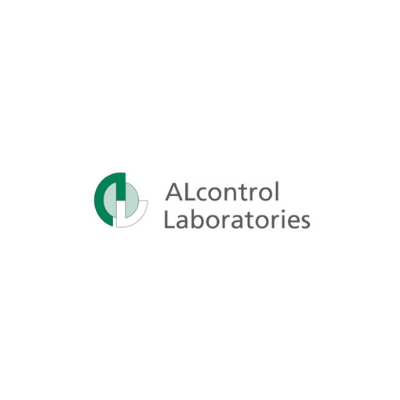The company’s Food & Water division, with 5 sites throughout the UK, is one of the UK’s biggest testers, carrying out some 8 million tests annually. Open for business 365 days of the year, and often needing to test into the early hours in order to meet customer deadlines, the work is fast-paced and can have unpredictable peaks.
The division’s work plays a hugely important role as part of a safety regime which protects and informs the public, testing that food is safe and contamination-free, checking and verifying nutritional claims and labelling (including for example that a product is ‘nut-free’), and substantiating the authenticity of food products too, think of the horsemeat scandal from a few years past.
Around 80% of the division’s work is food testing, with the other 20% involving testing the quality of water (important for water processing plants or for renal units, for example, in hospitals). “A demanding environment.” Mike McCorkell, Managing Director of the UK Food & Waters division at ALcontrol, explains: “We have 50 vehicles that collect food samples from manufacturers daily and for food safety tests we have to process them straight away. Most of our testing is pre-scheduled but even so we don’t usually know until the day it’s actually due to arrive what the volumes will be. So it can be quite pressured getting through the work and we rely considerably on the engagement, flexibility and goodwill of our staff to get the job done well. Not only can the work be pressured for staff, but the results can also lead to high stress situations for their customers. Listeria for example, in a manufacturer’s sample, then we have to break what is obviously a piece of very bad news to them,” Mike comments, “You’ve got to do that in a sensitive and human way , one of the areas where the need for excellent customer service really comes in.”
A customer service journey
It was four years ago when the company was consolidating some of its sites that it really occurred to Mike that a radical change to a more customer service focused approach was needed. “We were in danger of being too transactional in our dealings with customers, treating the work like a Lean production line. Our organisation was perhaps somewhat introverted as well, working hard under the bonnet but not communicating enough with customers in an engaging way. Mike recruited an experienced service and engagement expert, Julia Bloomer, from the steel industry (another tough industry, fighting hard for marginal gains) to supplement his team and together they set ALcontrol off on what has been a fruitful and rewarding journey.
Julia had experience of The Institute of Customer Service from her previous role, and enrolled the Food & Water division as a member too. Since 2013, the company has made wide use of The Institute’s products and services, including putting many of its staff through training programmes, such as FirstImpressions and ServiceManagement, using Business Benchmarking putting leaders and managers through Institute training qualifications for Communication, Solutions, Innovation and Coaching obtaining one of The Institute’s most prestigious accreditations, ServiceMark.
ServiceMark requires an organisation to carry out a survey of its employees to benchmark engagement; a survey of customers to gauge their level of satisfaction; and have an independent assessment carried out by an Institute representative. All three components require challengingly high scores in order to achieve the accreditation.
Julia Bloomer says: “There’s no doubt that being members of The Institute has really paid off for us. It’s benefited us in lots of different ways. Obtaining ServiceMark was the icing on the cake if you like, although for me the most important thing isn’t obtaining the accreditation, it’s the journey to get there and the things you learn along the way. The journey is still ongoing too. We’re the only commercial laboratory in the country to have ServiceMark so it stands out as a truly independent verification of our standards. Some of our competitors promote in-house survey results but without any facts or confirmation, so it’s a great achievement for us.”
Return on investment
And it’s not just a nice piece of paper or a plaque for the company to display, it has led to real return on investment. The food testing industry is a price sensitive marketplace, and margins are low. Getting fairly rewarded for work and making a sustainable profit can be challenging. Obtaining ServiceMark along with other Institute programmes, and achieving the underlying service standard that enabled this, has helped the company to swim against the tide on price. What it’s done for us is given us the knowledge and the confidence to increase our pricing in a fair way, knowing that our customers recognise our service offering too and will stay with us. So it’s had a direct commercial benefit,” Julia says.
Other programmes have led to financial benefits as well. “In the FirstImpressions training course, you have to come up with an actionable plan to improve an aspect of the business. One lady came up with a suggestion to plug a previously unseen revenue leakage around the way we invoice for agreed carriage charges which led to a £10,000 increase on the bottom line every month,” Julia says. “The training people go through has given them a voice and a sense of people power, that’s a return on investment in itself.” Putting the focus on customer service has paid off in multiple ways. Customer retention now stands at 95% compared to 85% four years ago; the average selling price per test has increased year on year for four consecutive years; employee retention has also increased; while the average employee engagement score has risen from 50% in 2012 to 84% now.
Seismic cultural change
“We’ve had a seismic cultural change,” Mike McCorkell observes. “We have a much improved workplace where people enjoy their jobs and are proud to tell their friends and family what they do at work. It is pleasing that when customers visit or audit they pick up on the vibe and comment on it and can see that we’re doing a good job. I’m proud to say that we love to let customers loose on site!” Julia adds. “We can let them stop and talk to anyone, anywhere. I don’t know how you put a price on that. Around 75% of the company’s 420 staff have now been on at least one Institute training programme and the aim is to get that to 100% in time. We benchmark ourselves with great service leaders in other industries, not specifically the food testing business which perhaps is less mature in developing service leadership,” Mike says. “I think we’ve created something quite unique, we’ve built a strong ethos around being a great place to work dedicated to great service, creating quality opportunities and careers for people.”
Other divisions in ALcontrol are now on the same journey, adopting a similar customer service focused approach and working to the same ‘value cycle’ where engaged staff drive great service helping the business gain a fair price and sustainable profitability. A commitment to customer service is now deeply embedded.

